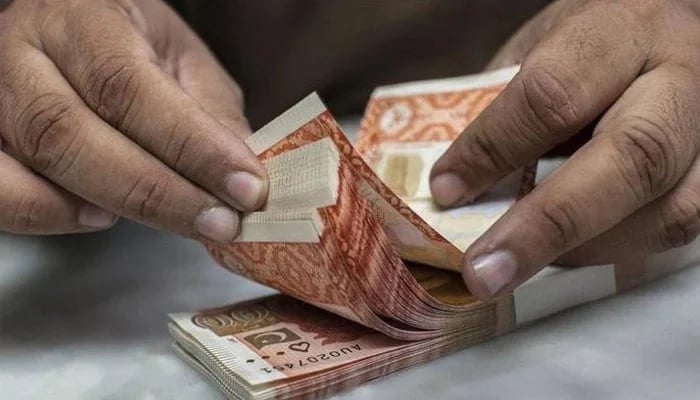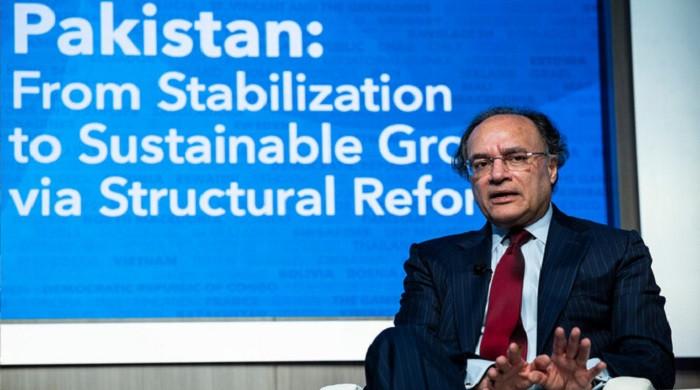Rupee free fall continues against dollar as pressure on currency persists
Following week-long depreciation trend, rupee closes at 220.6 against dollar after losing 6.01 cumulatively in last 5 sessions
August 26, 2022

- Rupee continues week-long trend of depreciation.
- Local unit closes at 220.6 in interbank market.
- Cumulatively, rupee lost 6.01 against greenback.
KARACHI: The Pakistani rupee's free fall continued against the US dollar Friday as the local unit remained under pressure in the interbank market due to wide-ranging factors.
Following its week-long depreciation trend, the rupee closed at 220.6 against the dollar after losing 1.25 or 0.57%, up from yesterday's close of 219.41.
Cumulatively, the local unit lost 6.01 against the greenback during the week ended August 26 as it depreciated in all five trading sessions.
Analysts and experts have said that the rupee will continue to slide till the International Monetary Fund (IMF) disburses Pakistan's $1.17 billion tranche in its executive board meeting on August 29.
In an interview with Bloomberg TV, State Bank of Pakistan Acting Governor Murtaza Syed said that Pakistan is likely to receive the tranche from the IMF within six days after the Executive Board’s approval.
Once Pakistan gets the loan from the IMF, experts are predicting that the country will get additional funds from multilateral and bilateral organisations — giving a further boost to the depleting forex reserves.
Apart from the pressure of the IMF, the government has also lifted the months-long ban on the import of luxury items and the exports have not increased at desired pace — resulting in pressure on the rupee.
Moreover, the UAE has made it mandatory for Pakistani travellers to declare 5,000 dirhams at the airport when landing — leading to an increase in the price of the US dollar in the open market.
Economist and former adviser to the federal ministry of finance Dr Khaqan Hassan Najeeb said the rupee is slipping not only because of the dollar's global strengthening but also due to recent political developments — causing jitters in the market.
He also cited depleting foreign reserves held by the State Bank of Pakistan (SBP) as a reason for the fall. Forex reserves stand at $7.8 billion — hardly enough for over a month of imports.
Exchange Companies Association of Pakistan (ECAP) General-Secretary Zafar Paracha told Arab News that the local unit's fall — among other reasons — was due to its smuggling to Afghanistan, where sellers get higher rates.











